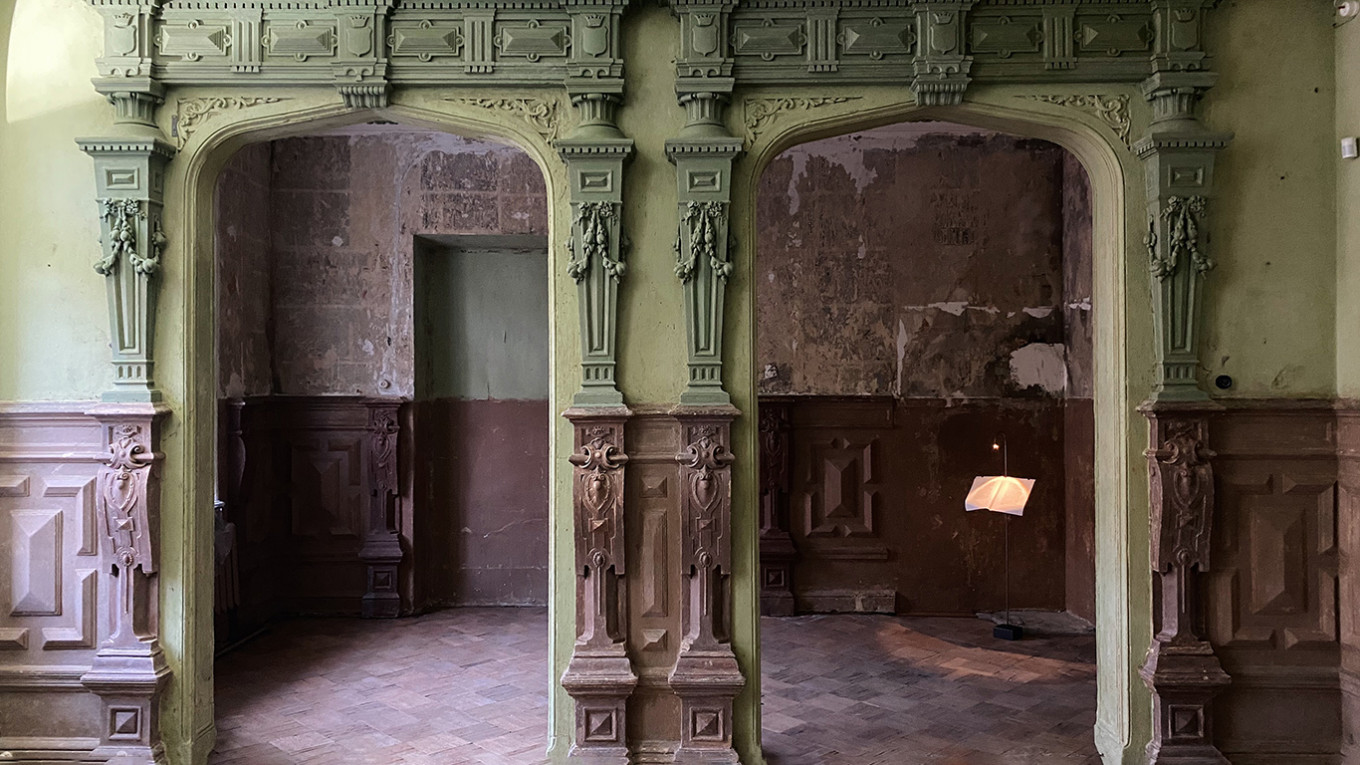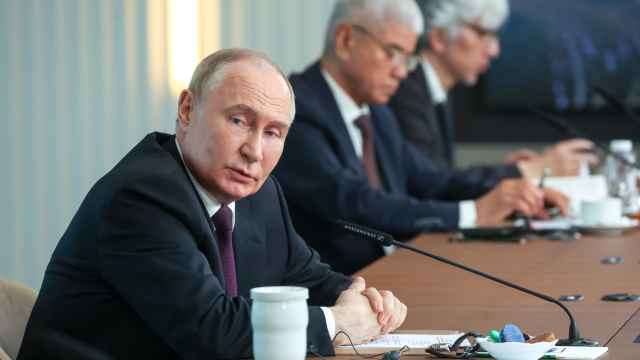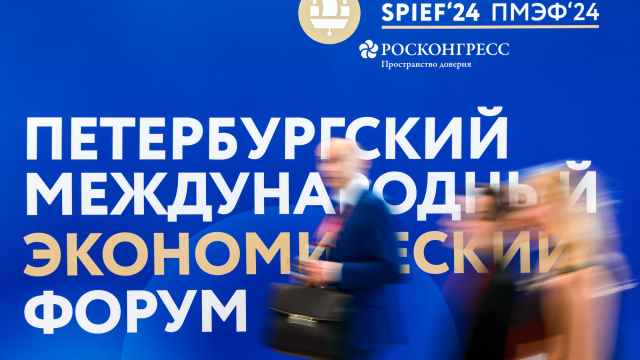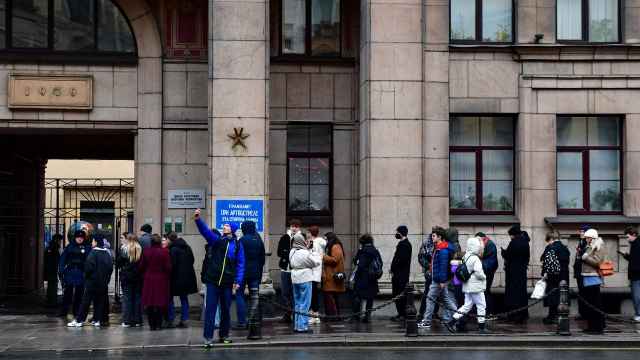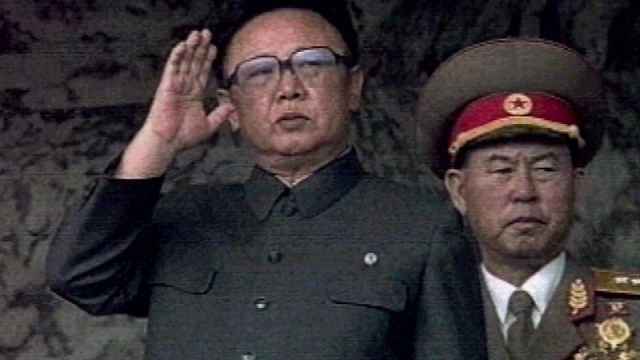After many years in the making, the Joseph Brodsky Museum has finally opened in the apartment he shared with his parents on Liteiny Prospekt in St. Petersburg, 25 years after his death at the age of 56.
The museum is divided into a modern section in a former flat that was adjacent to the one where Brodksy lived and the ‘room and a half’ — as Brodsky described the space he shared with his parents. Brodsky lived in communal apartment #28 in the former Muruzi House (built in the 1870s) from 1955 until 1972, when he emigrated to the U.S.
At present there are almost no objects that once belonged to Brodsky or his family, except a self-portrait Brodsky sent to a friend from his period of exile in the north. However, Brodsky’s widow Maria Sozzani has donated much of the interior of one of his American offices, which is currently on display in the nearby Anna Akhmatova Museum. The museum hopes to eventually show the exhibition in one of the rooms of the new museum.
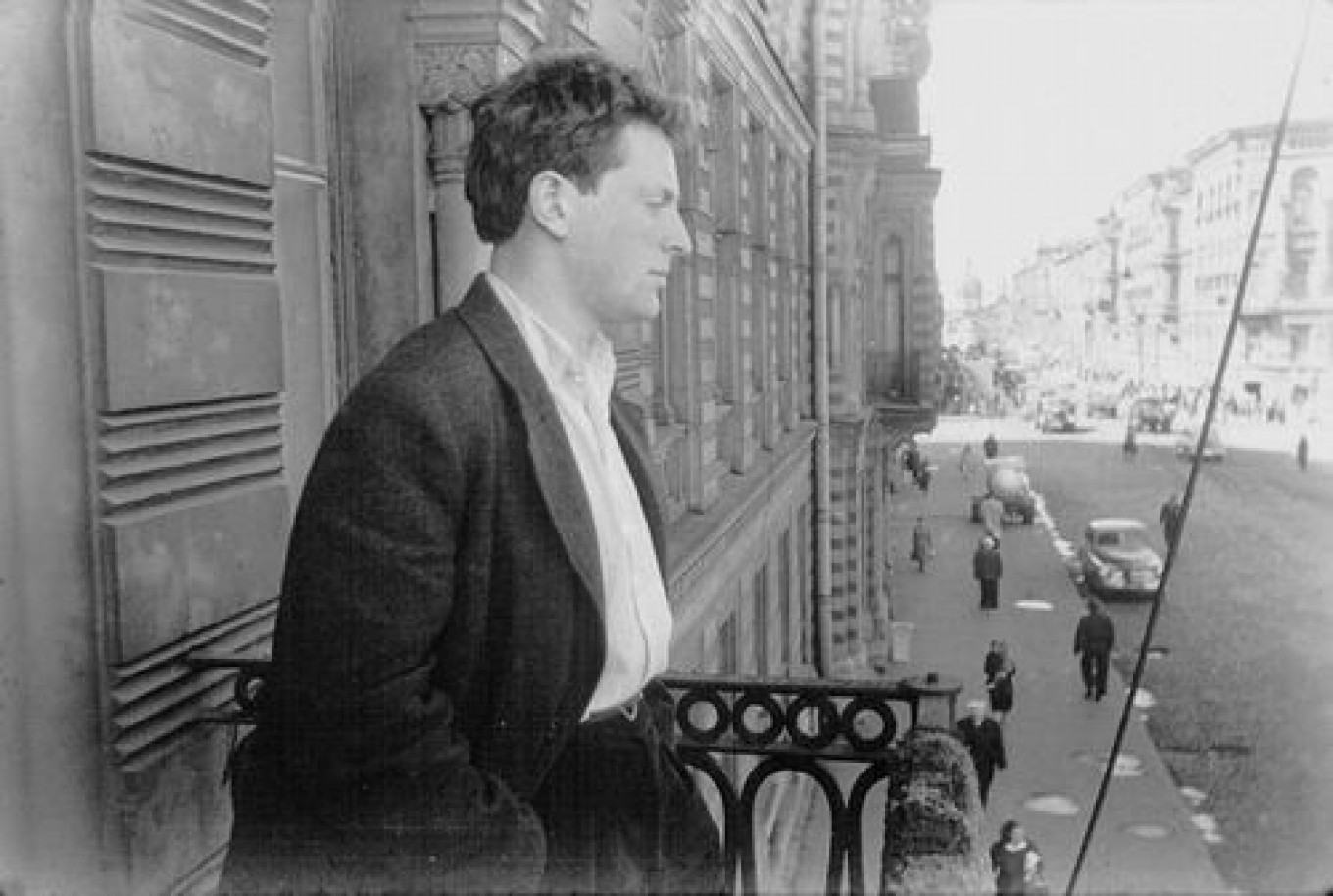
The walls in the Brodskys' former room and a half, which had been completely changed by subsequent inhabitants, were stripped down to wood lathes and plaster. There are photographs of the interiors as they were when the family lived here, taken by Brodsky’s friends after he emigrated and displayed on a windowsill, and a projection of his writing table, with his photographs of Anna Akhmatova and W. H. Auden, where it used to stand in a slightly recessed spot in his room. Outside one window is the balcony where Brodsky’s father used to take pictures of him.
Another large room in the communal apartment with a bay window that the family didn’t inhabit has also been stripped down; it is empty but for a sink, a piano and a contemporary, rather impressionistic bust of the poet. In the future, part of the Akhmatova exhibition may be displayed here. Its window offers a view of Spaso-Preobrazhensky Cathedral, the backdrop for some of Brodsky's photographic portraits. In another room in the modern part of the museum, a few objects that were found during renovations are on display, touching in their everydayness: several matchboxes, candy wrappers, and a shoe polish box. This room has a short projection of Brodsky reading an extract from his essay with the San Michele cemetery, where he was buried, behind him.
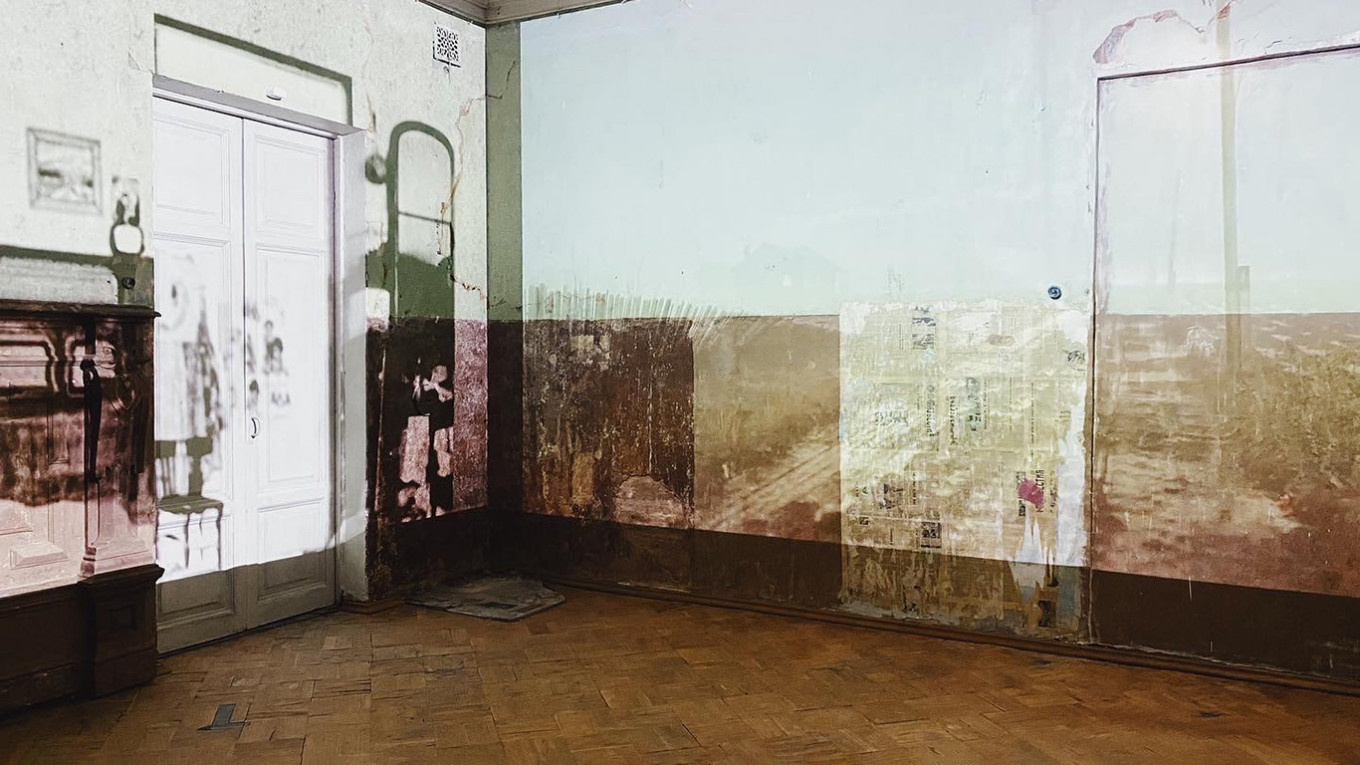
A narrow room that will eventually house a research archive now holds some first Russian editions of Brodsky’s works published in the U.S. and other books related to the poet. The modern section of the museum also has a recreated 1960s living room with a library of books written by Brodsky’s colleagues of that time, as well as books reflecting his interests. A large space nearby has been set up for lectures and seminars. At present you can pause to see the film "A Part of Speech" (2020) made with close friends of Brodsky, such as Anatoly Naiman, Yakov Gordin, Yevgeny Rein and others, reading his poetry.
The family’s former neighbor Nina Vassilevna is still alive and lives next door (her unwillingness to sell her rooms and move out had been the main hurdle for the museum). She doesn’t participate in the museum’s activities, although she knew Brodsky as a teenager and is a last link to a by-gone era. In deference to her, the museum tours are limited so as not to disturb her — a bit of the communal apartment experience for visitors.
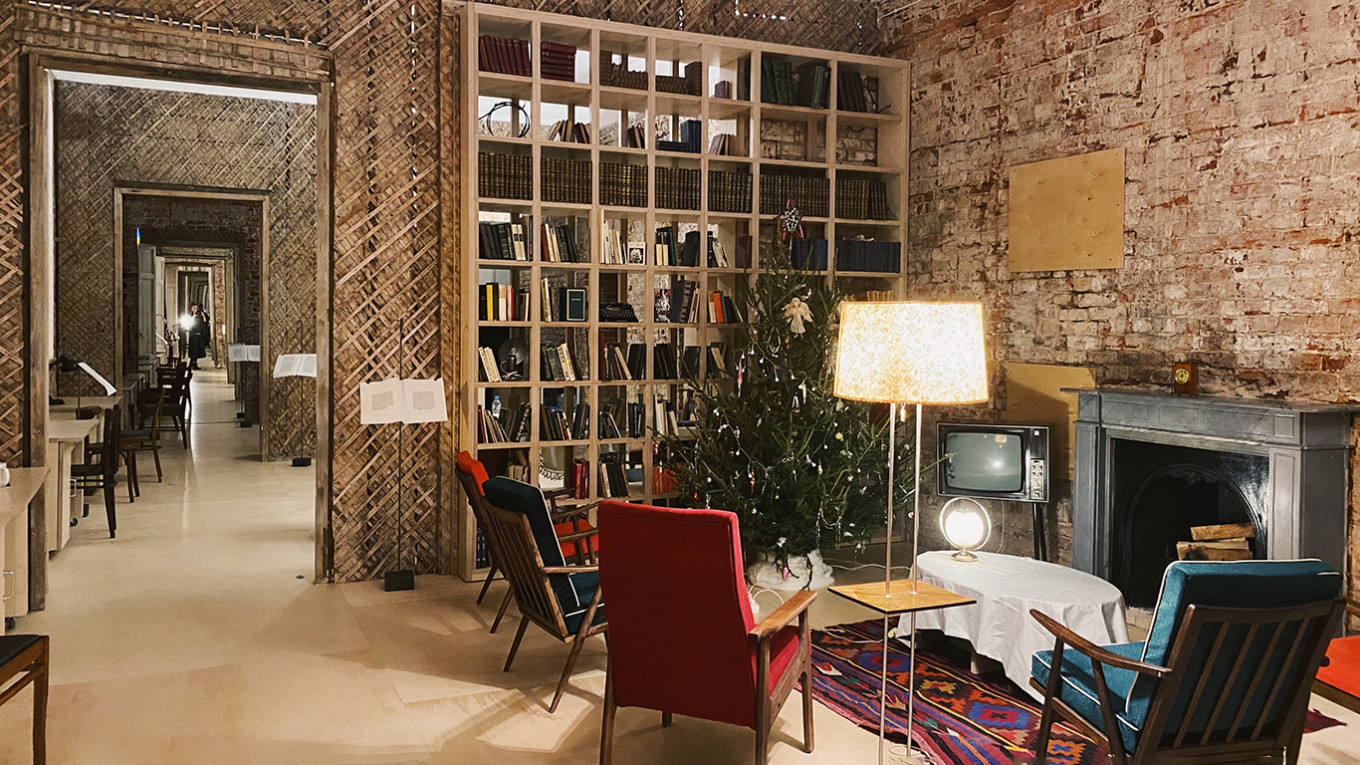
The museum is just getting underway; there are plans for lectures and other events, and efforts are being made to locate and acquire more objects for the collection. But right now, it would seem that the museum’s goal is less to inform than to bring people together in a kind of ritual of remembrance of the Nobel Prize Laureate. To paraphrase the title of book by another Russian poet, Maria Stepanova, translated by British poet Sasha Dugdale, people come ‘in memory of his memory,” bringing their own reminisences and memories of the poet to inhabit the empty spaces.
For more information about the museum, Joseph Brodsky, and to purchase tickets, see the site. The museum offers guided and unguided tours in Russian; tickets must be purchased ahead of time.
A Message from The Moscow Times:
Dear readers,
We are facing unprecedented challenges. Russia's Prosecutor General's Office has designated The Moscow Times as an "undesirable" organization, criminalizing our work and putting our staff at risk of prosecution. This follows our earlier unjust labeling as a "foreign agent."
These actions are direct attempts to silence independent journalism in Russia. The authorities claim our work "discredits the decisions of the Russian leadership." We see things differently: we strive to provide accurate, unbiased reporting on Russia.
We, the journalists of The Moscow Times, refuse to be silenced. But to continue our work, we need your help.
Your support, no matter how small, makes a world of difference. If you can, please support us monthly starting from just $2. It's quick to set up, and every contribution makes a significant impact.
By supporting The Moscow Times, you're defending open, independent journalism in the face of repression. Thank you for standing with us.
Remind me later.



